Another Young Iranian Protester Sentenced To Death
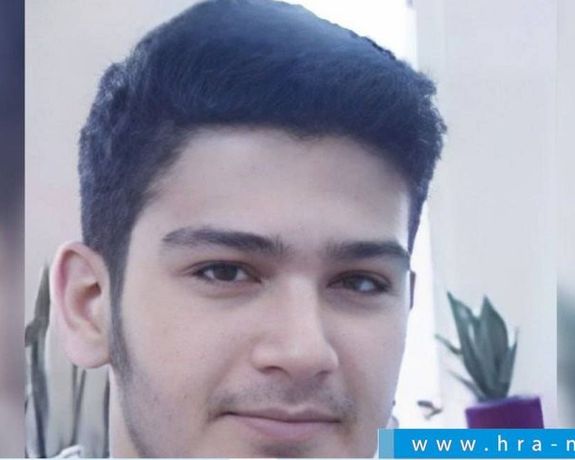
Human right activists say another young Iranian, who was detained during nationwide protests, has received the death sentence on vague political charges.

Human right activists say another young Iranian, who was detained during nationwide protests, has received the death sentence on vague political charges.
The US-based Human Rights Activists News Agency HRANA reported Tuesday that Arshia Takdastan, 18, arrested in Nowshahr, has been sentenced to death by a Revolutionary Court in the northern city of Sari in Mazandaran province.
The charges that have led to the death sentence are “enmity with God” and “Corruption on earth,” both vague principles in Islamic law that the regime uses to issue death sentences. Some clerics have challenged the government for using these charges against dissidents.
He has also been sentenced to six years of prison on charges of “disrupting security and inciting people to kill each other”, as well as “propaganda against the institution”. He must also serve two years in prison for “insulting the Supreme Leader”.
According to this report, his accusations are related to the protests held on September 21 in Nowshahr.
HRANA quoted an informed person as saying that “the court issued its verdict based on an accusation that he threw a bottle and a stone at a police car."
The same court on Monday sentenced another 18-year-old protester Mehdi (Shayan) Mohammadifard, to double death.
HRANA said the political prisoner was deprived of the right to have a lawyer and in the absence of his chosen solicitor, the court accused him of "directing and planning" the protest rally on September 21 in Nowshahr.
An informed source close to Mohammadifard's family said, “all the confessions by the defendant during the interrogation were obtained under duress.”

Islamic Republic’s Supreme Leader Ali Khamenei used to be revered by some and feared by some other Iranians but now he is constantly ridiculed and reviled by many people.
Recently, French satirical magazine Charlie Hebdo has launched an international competition -- called "Mullahs Get Out" -- to produce caricatures of Khamenei, as a “symbol of backward-looking, narrow-minded, intolerant religious power.”
On Tuesday, French daily Le Monde published one of the cartoons, saying that Charlie Hebdo is publishing a special issue on the occasion of the eighth-year anniversary of the Paris terrorist attacks, mocking Khamenei in support of the protests in Iran. Charlie Hebdo has been the target of three terrorist attacks: in 2011, 2015, and 2020. All of them were presumed to be in response to a number of cartoons that it published controversially depicting Islam’s Prophet Muhammad. In the 2015 attack, 12 people were killed.
“The freedom to which every human being aspires is incompatible with the archaism of religious thought and with submission to every supposedly spiritual authority, of which Ali Khamenei is the most deplorable example,” Charlie Hebdo wrote.
On Wednesday, Foreign Minister Hossein Amir-Abdollahian censured the controversial French magazine Charlie Hebdo for publishing caricatures of Khamenei, warning of an “effective and decisive response.” The satirical magazine recently launched an international competition -- called "Mullahs Get Out" -- to produce caricatures of Khamenei, as a “symbol of backward-looking, narrow-minded, intolerant religious power.”
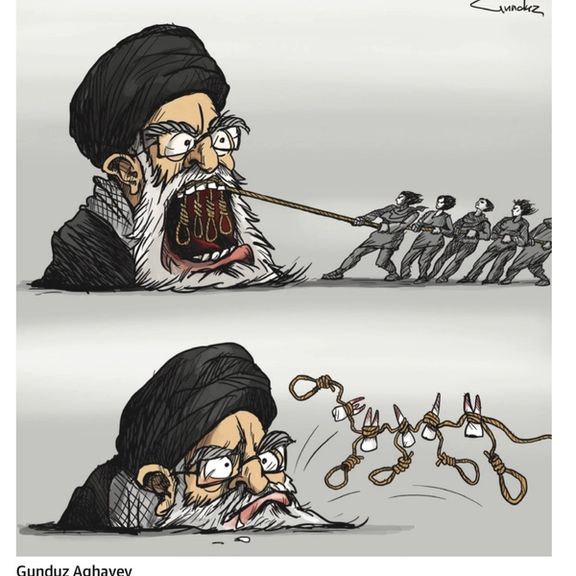
As part of the special "January 7" issue, commemorating the anniversary of the 2015 Charlie Hebdo attack, the satirical weekly chose to support Iranian men and women and to "beat the mullahs," Le Monde said, adding that the paper was able to view 35 drawings selected from the 300 sent to the Charlie Hebdo editorial office, including from Iran, Turkey, the United States, Senegal and Australia.
The magazine advised that a cartoon of Khamenei should be the "funniest and meanest" possible, noting that "Cartoonists and caricaturists have a duty to help support Iranians in their struggle as they fight for their freedom, by ridiculing this religious leader who represents the past and casting him into history’s garbage bin.”
“One cartoon shows Khamenei being punched with the slogan 'Women, Life, Freedom,' while another depicts a mullah being crushed under a heel. Among the very political drawings, the supreme leader is also depicted as Marilyn Monroe, whose dress is lifted by the wind of the headscarves that women have freed themselves from. In another, armed with stones, they pommel him,” Le Monde described some of the works.
Since the beginning of the current wave of protests in mid-September, Charlie Hebdo also published other cartoons of Khamenei, one of which prompted the Islamic Republic’s Foreign Ministry to summon the French chargé d'affaires in Tehran. In the cartoon, Khamenei is depicted with bloody hands and a turban and an attire with the logo of clothing manufacturing company Nike and its motto: Just Do It.
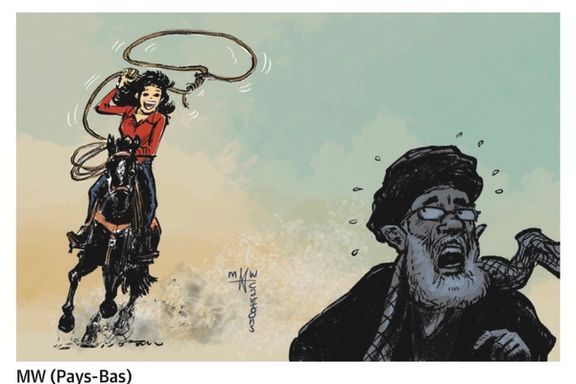
The landscape of Iranians’ protests against the regime has never been this openly full of insults and slogans against the country’s ruler. Chanting “Death to the Dictator” and “Death to Khamenei” was still a taboo until very recently even during the protests. But now, making fun of the authorities and even the dead ones – which is extremely frowned upon in Iranian society – has become a common way of protests.
In December, a famous Iranian actor lashed out at Khamenei saying at least try to be a “personable dictator”. He compared Khamenei with other dictators such as Francisco Franco, Mao Zedong, Joseph Stalin and Benito Mussolini, saying he is “mentally ill” just like his “colleagues”.
January 3 marks the death anniversary of the commander of IRGC’s Quds (Qods) Force -- a division primarily responsible for extraterritorial military and clandestine operations. He was one the most revered figures of the Islamic regime and was killed in a drone strike ordered by former President Donald Trump. His body was so mutilated in the explosion that many social media users described him as a “Cutlet” after his death, an Iranian dish resembling hamburgers mixed with potatoes. Despite extravagant ceremonies to honor his memory, Iranians are burning his banners and statues all over the country and even named January 3 as World Cutlet Day.
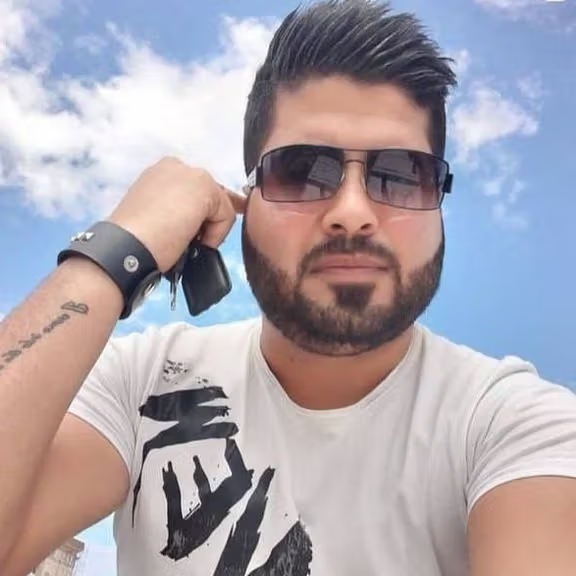
Iran International has learned that one of the victims of Iran protests was shot from behind the head at close range by an IRGC commander in northern Iran.
Mehran Basir Tawana, a 29-year-old athlete from Foman, was shot on November 16 on the anniversary of those who were killed in 2019 protests.
One of his relatives, whose identity cannot be revealed due to security reasons, told Iran International that "On November 16, Mehran got out of work with his friend to go shopping. On the way back, he saw a group of government agents beating an old woman."
"Mehran got out of the car to talk to the security forces very calmly to convince them not to beat her, but when he wanted to help the old lady to get out of the area, a commander of IRGC shot him in the back of the head, at a distance of almost one meter…,” he added.
According to this informed person, Mehran Basir Tawana was taken to hospital by other people, but three days later he succumbed to his injuries in Rasht hospital.
During a memorial ceremony for Mehran a few days later, those present chanted slogans against the Islamic Republic, and after that, the threats and harassment of other family members begin.
According to the source, at the same time one of the family members, who only published stories about Mehran's death, was arrested and has been tortured for more than a month.
Iranian human rights groups abroad monitoring the protests report that more than 500 civilians, including 64 children and 34 women, have been killed during since unrest began after the death of Mahsa Amini in police custody in mid-September.
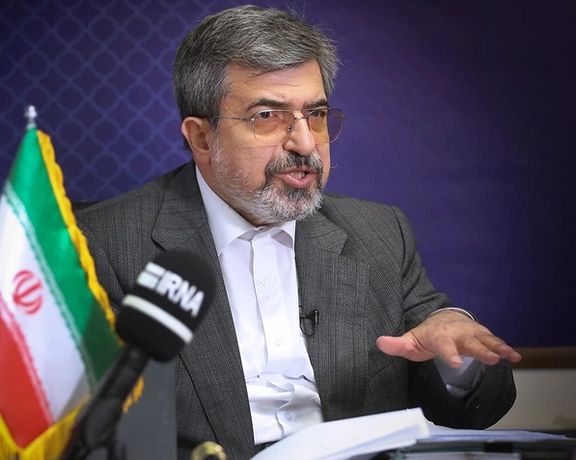
Iran’s hardliner Judiciary says two French and one Belgian national have been indicted for “espionage and working against Iran’s national security”.
In a press briefing on Tuesday, Judiciary Spokesman Masoud Setayeshi said the two French citizens have been indicted, but no verdict has been issued for them yet.
Regarding the Belgian national, Setayeshi said he was indicted and as soon as the verdict is issued the judiciary will announce it.
However, Setayeshi did not identify the detainees and did not provide any more information about their charges.
On the issue of almost 40 other detained foreign nationals, Setayeshi said they have been arrested in different regions of the country and are accused of different charges. He said the number of those other nationals is “limited” and the judiciary will give more information about their status in future.
Following Supreme Leader Ali Khamenei’s lead, Iranian officials claim that the ongoing antigovernment protests across Iran – ignited by death in custody of 22-year-old Mahsa Amini -- are instigated by foreign enemies.
After the outbreak of protests, Iran said in late September it had detained nine foreign nationals linked to unrest, including those from France, Germany, Italy, Poland and the Netherlands.
Meanwhile, several foreigners visiting Iran have disappeared, confirming earlier reports that the Islamic Republic is taking foreign citizens hostage.
Tehran denies any policy of hostage taking and insists all foreigners are tried according to legal process. However, it has frequently shown readiness for prisoner exchanges and participated in swaps in the past.
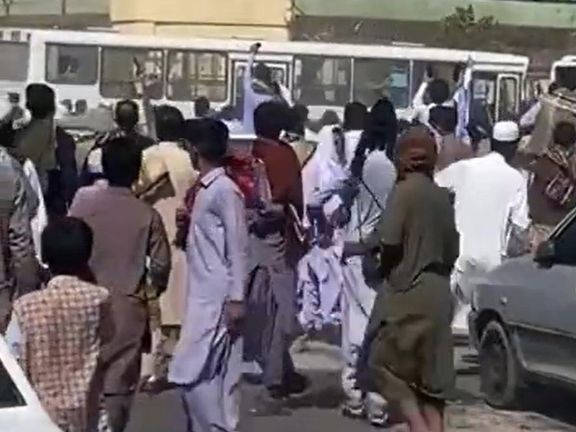
Iranian regime forces have arrested at least 40 citizens in a joint operation in the flashpoint city of Zahedan in the southeastern Sistan and Baluchestan province.
Halvash website that covers Baluchestan events said the operation was jointly carried out by the Ministry of Intelligence, the Revolutionary Guard, and the provincial police forces while the detainees have been transferred to an unknown place.
IRNA news agency quoted an “informed source” saying the detainees were “criminals and armed robbers of Zahedan."
However, activists say almost 30 were arrested in a sports field in Karimabad region of Zahedan.
Within the past thirteen weeks, Zahedan, a Sunni Baluch city, has been the scene of weekly protests against the regime on Fridays.
The Bloody Friday in Zahedan took place September 30, when security forces killed at least 93 people, and injured hundreds more as civilians protested.
The US-based Iranian Human Rights Activists News Agency (HRANA) reported Monday that at least 516 people, including 70 children have been killed by the regime forces during the nationwide protests following the death of Mahsa Amini in police custody in mid-September.
While the Islamic Republic has not provided accurate figures of those detained in the protests, the watchdog went on to say that at least 19,204 protesters have been arrested including 687 students.
HRANA added that 161 cities and more than 144 universities across Iran have also been the scenes of anti-government protests.

Iran’s Judiciary does not allow protesters and dissidents to choose their own lawyers during trials that could even bear the death sentence for the defendants.
According to Iran's laws, those on trial for crimes against national security can only be represented in court by lawyers that have the “endorsement” of the chief justice himself. Almost all dissidents are accused of acting against national security among other crimes, such as insulting the Supreme Leader or unlawful assembly.
The restriction also applies to protesters who have been charged with "corruption on earth" or "waging war against God'' both of which bear a death sentence. Iran's revolutionary courts have sentenced more than 50 protesters to death on such charges since November.
Two protesters who were hanged in December, Mohsen Shekari and Majidreza Rahnavard, were both deprived of the right to choose their own lawyers. They were represented at their trials by court-appointed lawyers. The two young men, apparently, met their attorneys on the day of their trial at court where the lawyers’ role was limited to keeping up appearances of a fair trial.
Iran’s Judicial system, controlled by the Supreme Leader, oversees both judges and prosecutors, while closely coordinating with security and intelligence entities.
Families of some protesters who are on trial allege that the lawyers representing their loved ones made very little effort to present a proper defense and their only statement in court was what was dictated to them by the judiciary and security agents to ensure a pre-determined outcome. The hanging of the two young men was meant to instill fear among the people and keep them away from the protests, the families and others say.
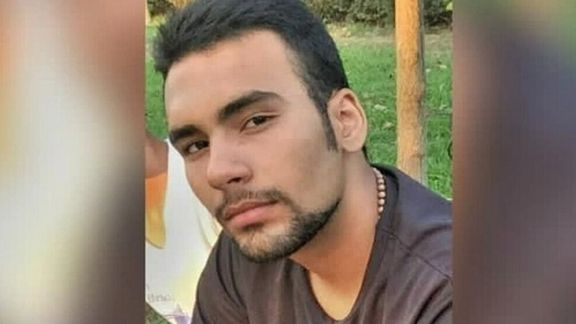
Mashallah Karami whose son Mohammad-Mehdi Karami has been sentenced to death in Alborz Province for alleged participation in the killing of a member of the Basij militia told Etemad newspaper recently that he tried to contact his son’s court-appointed “endorsed lawyer” for a week, after his sentence was announced, to proceed with appeals but never received a response from him. “The court-appointed lawyer refused to let me have the address of his office to go there and tell him what my son has told me for using it in his defense.”
“It’s a matter of life and death for a young man. Shouldn’t the family of the accused be allowed to have their own attorney?” Karami who says his son has sworn his innocence to him said.
Nemat Ahmadi, lawyer and professor of law, told Arman-e Emruz newspaper in December that some of the “endorsed” lawyers, even when appointed by the court rather than the accused, work for extremely high fees. “We heard recently that one [such] lawyer had demanded $250,000 from the family of the accused,” he said.
Ahmadi also pointed out that one of these lawyers told the judge at a recent trial, when he was asked if he had spoken with his client, that he had met his client who was hospitalized for “half an hour” before the trial.
Just a week ago, defense attorney Amir Raesian announced that authorities had finally accepted him and his colleague Roza Etemad-Ansari to represent jailed dissident Toomaj Salehi and that they would be meeting with Toomaj after reading the case files.
The lawyer’s announcement came amid international pressure on the Islamic Republic to free Toomaj who was arrested in late October. The 32-year-old popular rapper could be facing a death sentence for vague charges based on Islamic law, "corruption on earth" and "waging war against God”, brought against him.
“It’s a first and important milestone,” member of the German Bundestag Ye-One Rhie who recently accepted the rapper’s political sponsorship, tweeted about the new development in the case after the announcement.